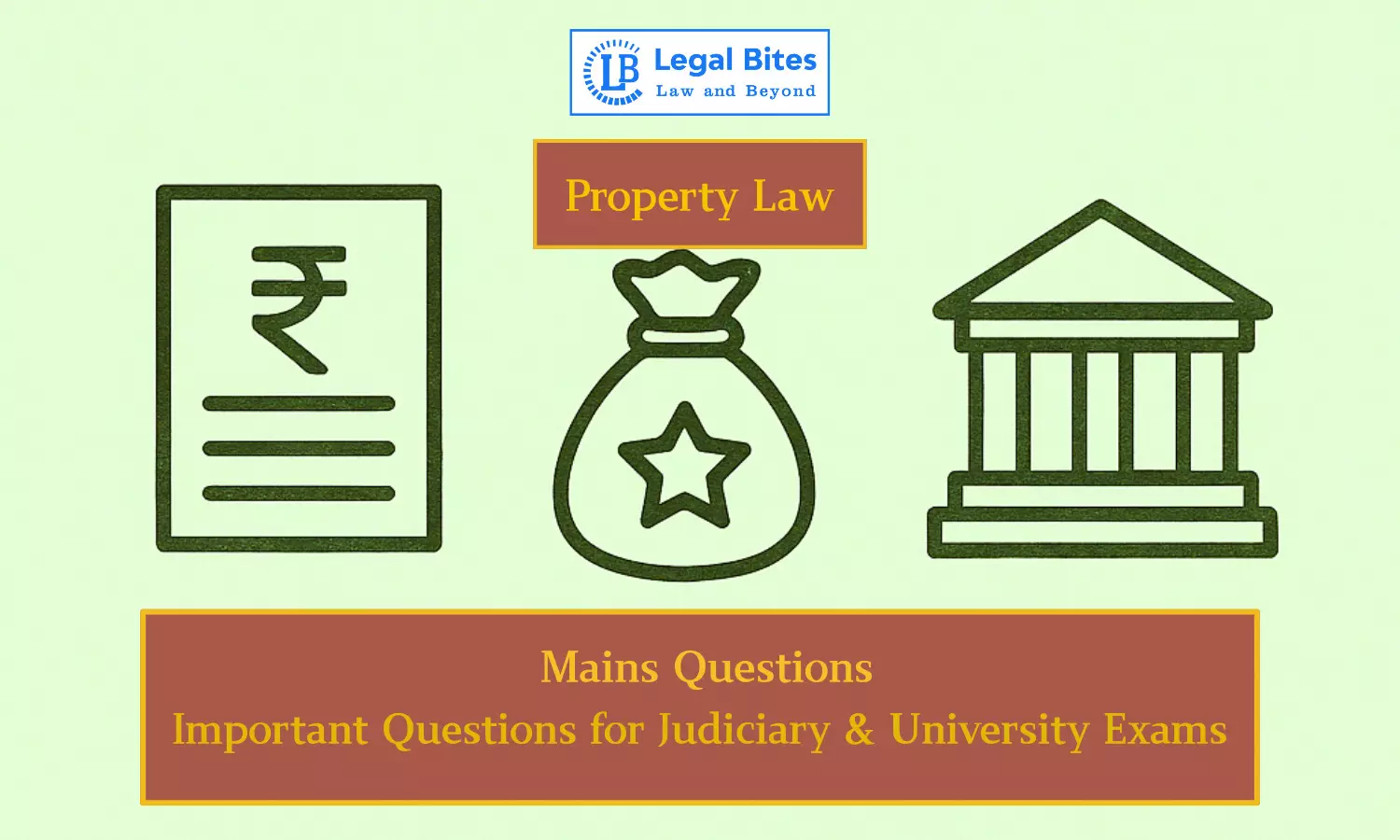Define "Actionable Claim" and state the principles governing the transfer of an "actionable claim".
Find the answer to the mains question of Property Law only on Legal Bites.

Question: Define "Actionable Claim" and state the principles governing the transfer of an "actionable claim". [OJS 2018]Find the answer to the mains question of Property Law only on Legal Bites. [Define "Actionable Claim" and state the principles governing the transfer of an "actionable claim".]AnswerAn actionable claim, as defined under Section 3 of the Transfer of Property Act, 1882, refers to a claim to any unsecured debt or a beneficial interest in movable property not in the possession...
Question: Define "Actionable Claim" and state the principles governing the transfer of an "actionable claim". [OJS 2018]
Find the answer to the mains question of Property Law only on Legal Bites. [Define "Actionable Claim" and state the principles governing the transfer of an "actionable claim".]
Answer
An actionable claim, as defined under Section 3 of the Transfer of Property Act, 1882, refers to a claim to any unsecured debt or a beneficial interest in movable property not in the possession of the claimant, which the civil courts recognize as grounds for relief. These claims are enforceable through a civil suit and commonly include arrears of rent, money due on unsecured promissory notes, or insurance claims. However, speculative interests like lottery winnings are not considered actionable claims.
The transfer of actionable claims is governed by Sections 130 to 137 of the Act. According to Section 130, such a transfer must be made through a written and signed instrument, although no specific format or registration is required unless mandated by other laws. While consideration is not essential, most transfers involve one in practice.
Though not mandatory, giving notice to the debtor is strongly advised. Without notice, the debtor may legally discharge the debt by paying the original creditor. On transfer, the transferee assumes all rights and liabilities of the transferor and may sue in their own name without involving the transferor.
It is important to note that negotiable instruments like cheques and promissory notes are excluded from this framework and governed separately by the Negotiable Instruments Act, 1881.
Judicial interpretations, such as in Jugalkishore Saraf v. Raw Cotton Co. Ltd. (1955), have clarified that actionable claims must relate to enforceable rights and not mere expectations. Thus, the legal regime ensures that such intangible rights can be validly transferred and enforced, aiding both civil and commercial transactions.
An actionable claim represents an unsecured, enforceable civil right over debt or beneficial interest in movable property.

Mayank Shekhar
Mayank is an alumnus of the prestigious Faculty of Law, Delhi University. Under his leadership, Legal Bites has been researching and developing resources through blogging, educational resources, competitions, and seminars.
